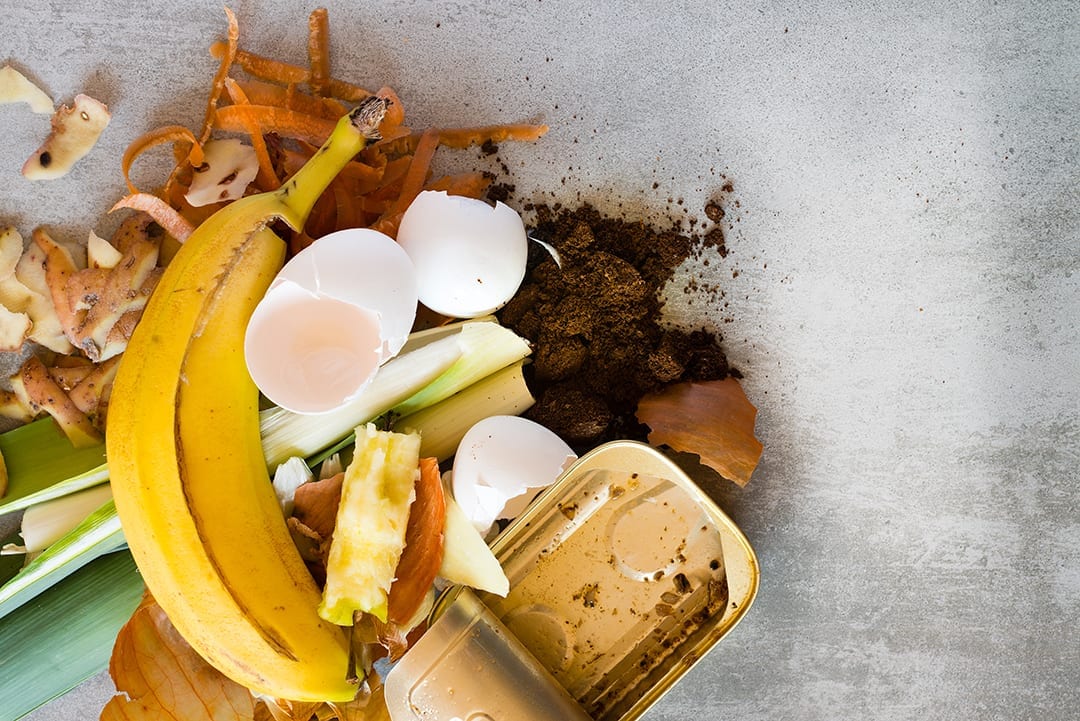As the population of Bend and Central Oregon continues to grow, so does the amount of waste we collectively send to the landfill.

While recycling is an important step in trash management, preventing waste from occurring in the first place is the gold standard in sustainability.
“We say ‘reduce, reuse, recycle’ in that order because it’s the order of importance and impact,” said Denise Rowcroft, a sustainability educator and the manager of the ReThink Waste project spearheaded by the Environmental Center of Bend. Here, we share easy-to-adopt tips to help you begin a reduce-reuse-recycle habit. And for those who want to make an even bigger impact, we offer advice on how to take your home trash management and prevention routine to the next level.
About a quarter of the trash that enters the landfill is food waste. Once in the landfill, that food waste releases methane gas, which contributes to greenhouse gas emissions and ultimately global warming. Composting your food scraps not only reduces methane gas emissions, but also breaks down to create a nutrient-rich soil for your garden or flower beds.
While composting is highly recommended for disposing of unused veggies and fruits—just like recycling—it’s worth taking a look at your buying habits to prevent food from needing to be composted in the first place. It’s not just good home economics. Purchasing less means a reduction in your total carbon footprint.
“If you have a lot of fruits and veggies going bad in your fridge,” explained Rowcroft, “there is still a significant upstream environmental impact to ship that carrot grown in California on multiple trucks to Bend.”
1. Shop your cabinet and fridge first.
This has two benefits: You avoid buying duplicates and you may discover something to add to your weekly meal plan before it goes bad.
2. Make a plan before you buy.
Creating a meal plan and shopping list in advance of your trip to the grocery store helps you purchase only what you need.
3. Eat your leftovers.
Step 1 will help you remember to follow through with Step 3.
4. The freezer is your friend.
If you don’t have a plan for a specific food item before it will spoil, freeze it for later use. Just don’t forget to “shop your freezer” on a routine basis.




